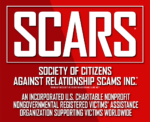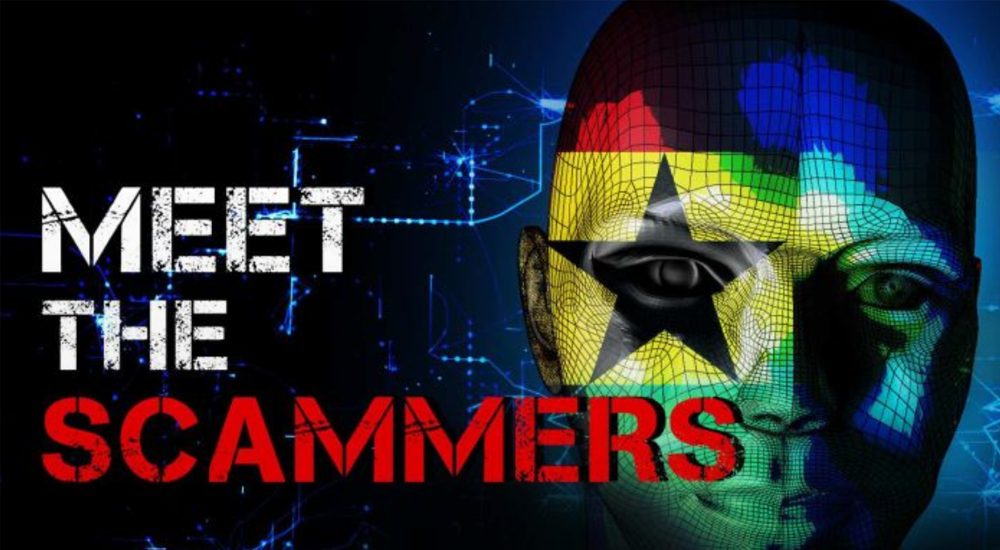SCARS™ SCAM NEWS: Meet The Scammers [Video]
The Cybercriminals Breaking Hearts And Stealing Billions
“The criminals involved in this are definitely masters of manipulation. This is their job and they’re very good at it, and they’re very proud of being good at it.” Cyber scam expert.
Their voices are persuasive, their emails insistent and they have proven to be remarkably successful at conning countless people into handing over their money.
“When you have an appreciation for how big and sophisticated it is, this machine that’s behind it that’s targeting them, that’s where it sorts of tends to awaken one.” Police officer.
Internet scamming began in the early days of email with appeals from Nigerian ‘princes’ asking for help to regain their missing money. From those amateurish beginnings, the scammers watched, learned and refined their techniques. What started out as a simple scam from West Africa has now morphed into a global enterprise, conning people on an industrial scale.
“West African cybercrime is the biggest threat that we see on the internet today. It eclipses all the other threats that we’ve seen that are financially motivated.” Cybersecurity investigator.
On Monday Four Corners investigates how these scams operate, uncovering an online marketplace where fake identities and criminal skills are bought and sold.
“They offer Facebook profiles for sale, they offer pictures of uniformed servicemen for sale, they offer the backstory and kind of how you get started.” Retired US army colonel.
Reporter Sean Rubinsztein-Dunlop traveled to Ghana to meet the scammers and watch them at work.
“The best targets are people who are divorced or widowed.” Scammer.
At the heart of their business is the ‘romance scam’, where criminals, often posing as lovelorn US soldiers, convince their victims to send them money.
“Over the course of the last two years, I’ve reported over 3,000 accounts to Facebook of scammers using my pictures to steal money from women.” Retired US army colonel.
For some, the romance scam is just the start of the nightmare, with victims used to launder money or conned into trafficking drugs, with devastating consequences.
“When they opened it and tested it and told me what it was, I was in complete shock, complete shock.” Drug mule.
And there’s growing evidence that the scammers are not only targeting Australian victims, they’re also setting up operations right here.
Meet the scammers, reported by Sean Rubinsztein-Dunlop, goes to air on Monday 11th February at 8.30pm. It is replayed on Tuesday 12th February at 1.00pm and Wednesday 13th at 11.20pm. It can also be seen on ABC NEWS channel on Saturday at 8.10pm AEST, ABC iview and at abc.net.au/4corners.
Click On The Title In The Content Box Below To View The Full Story
[contentcards url=”https://www.abc.net.au/4corners/meet-the-scammers/10790758?fbclid=IwAR1XcqwlB4nL_gozlrNjh0jkMyK0LitSb40clNCTOpjZfySYbzdnazQgYfs” target=”_blank”]

RSN™ Team
A SCARS Division
Miami Florida U.S.A.
TAGS: Romance Scammers, Romance Scams, Love Scam, Dating Scam, False Identity, Fake Profile, Fake Soldier, Impersonation, African Scam, Ghana Scammer, Nigerian Scammer, Scammer Gallery, Fake Faces, Fake Female, Fake Men,
END
Tell us about your experiences with Romance Scammers in our Scams Discussion Forum on Facebook »
FAQ: How Do You Properly Report Scammers?
It is essential that law enforcement knows about scams & scammers, even though there is nothing (in most cases) that they can do.
Always report scams involving money lost or where you received money to:
- Local Police – ask them to take an “informational” police report – say you need it for your insurance
- Your National Police or FBI (www.IC3.gov)
- The Scars Worldwide Reporting Network HERE or on www.Anyscam.com
This helps your government understand the problem, and allows law enforcement to add scammers on watch lists worldwide.
Visit our NEW Main SCARS Facebook page for much more information about scams and online crime: www.facebook.com/SCARS.News.And.Information
To learn more about SCARS visit www.AgainstScams.org
Please be sure to report all scammers HERE or on www.Anyscam.com
All original content is Copyright © 1991 – 2020 SCARS All Rights Reserved Worldwide & Webwide – SCARS/Romance Scams Now & SCARS/Society of Citizens Against Relationship Scams are all trademarks of Society of Citizens Against Relationship Scams Incorporated




![Meet The Scammers [Video] - SCARS™ SCAM NEWS 1](https://www.romancescamsnow.com/wp-content/uploads/2018/07/REPORT-BLOCK-RECOVER2.png)
Please Leave A Comment - Tell Us What You Think About This!